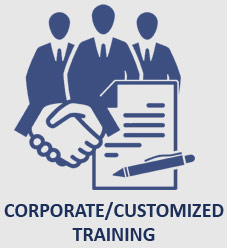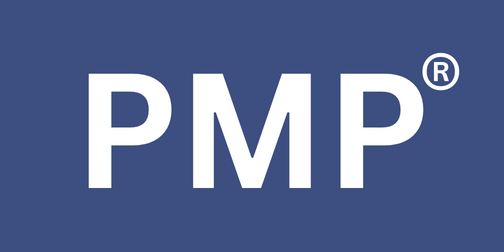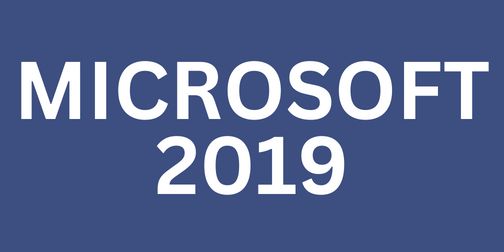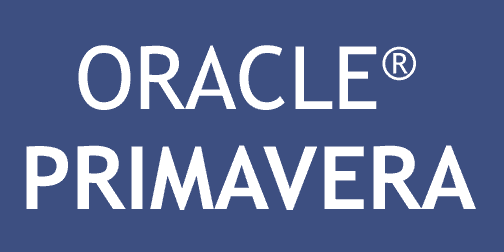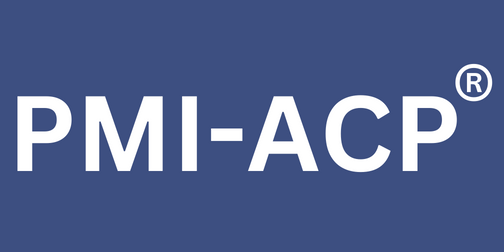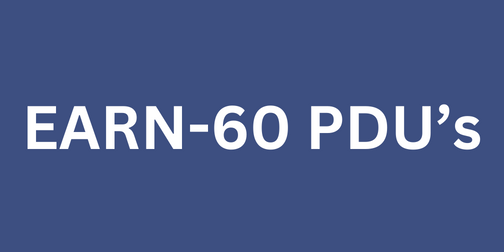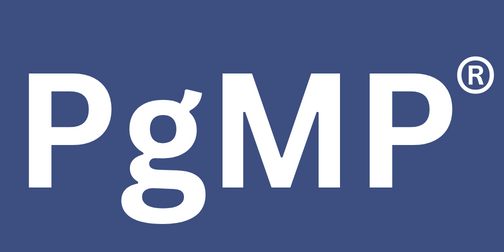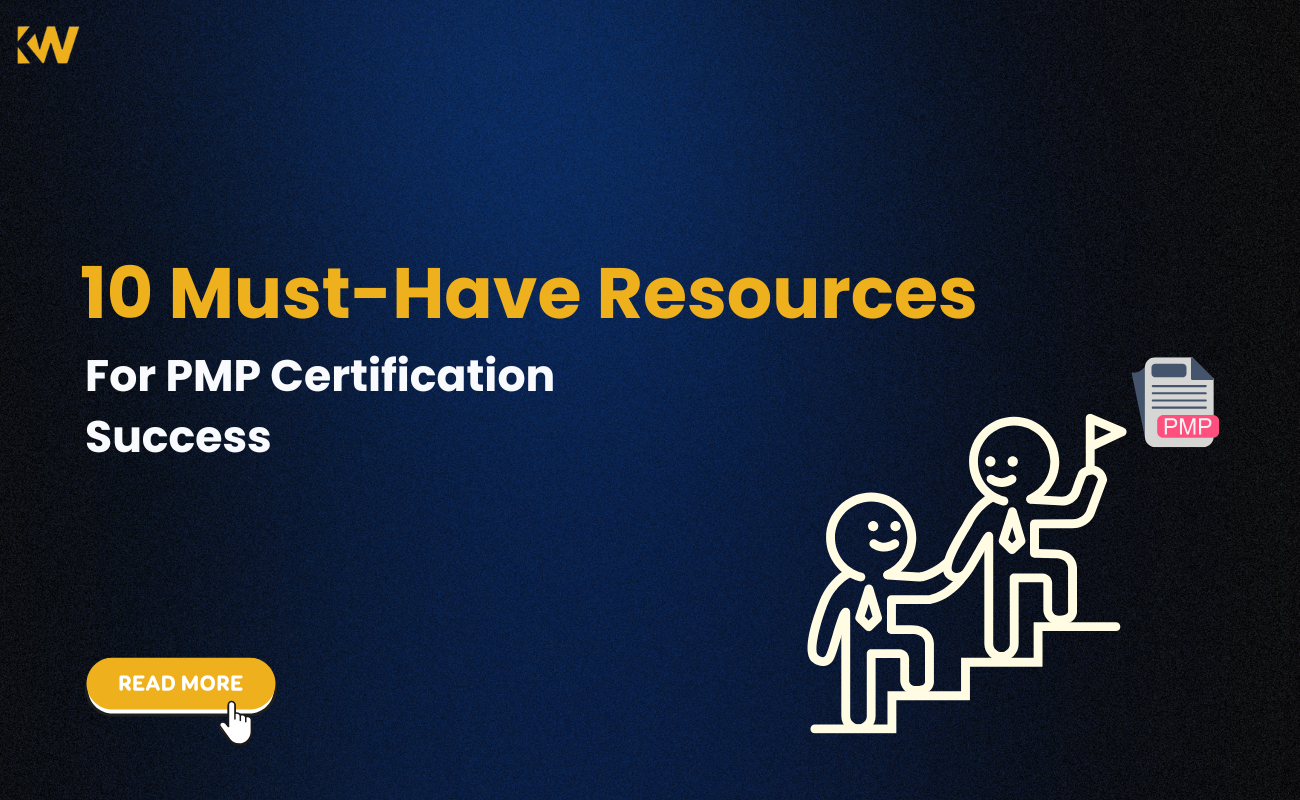
10 Must-Have Resources for PMP Certification Success
Posted On December 12, 2024 - 12:09 PM
The pmp certification is among the most sought-after certifications in the field of project management. The process of obtaining PMP certification requires commitment organized preparation and the right tools. Using the correct tools and training will increase your chances of passing the test on the first attempt. Here are the top ten tools to ensure your success:
1. PMBOK Guide (Project Management Body of Knowledge)
The PMBOK Guide is the most dependable guide for PMP test preparation. The guide is produced through the Project Management Institute (PMI) the guide provides a thorough outline of processes for managing projects Knowledge areas, concepts, and the best methods. It is important to familiarize yourself with the guide. is crucial since a large portion of PMP exam questions derive from its contents.
Key Features:
-
It contains the fundamental knowledge needed for project management.
-
Provides detailed explanations of process groups and knowledge areas.
-
As a reference source for the terms used in project management.
How to Use:
-
Learn and comprehend the most important concepts, focusing on the steps and their techniques, inputs, tools and results (ITTOs).
-
Utilize it along with other sources for examples of practical use.
2. PMP Exam Prep Books
The books like Rita Mulcahy's PMP Exam Prep and Head First PMP are fantastic complements for the PMBOK guide. These books simplify complicated concepts and provide actionable strategies for preparing for the test confidently.
Key Features:
-
Practice questions, real-world examples, and suggestions to help you pass the exam.
-
Define concepts in an easy-to-understand way.
How to Use:
-
Spend time reading each chapter, and then attempt the questions that accompany practice.
-
Use them to help clarify any concept that you are unable to grasp within your PMBOK Guide.
3. Online PMP Training Courses
PMI requires that candidates finish 35 hours of official pmp certification before taking the test. Online PMP training courses on platforms like knowledgewoods Simplilearn or Coursera offer flexible and interactive learning choices.
Key Features:
-
Complete the 35-hour requirement for training.
-
Incorporate video lectures, quizzes and study guides.
-
Provide lifetime access in many instances.
How to Use:
-
Follow the program's structure and participate in all the activities.
-
Note down the most important topics and revisit them regularly.
4. Practice Exams and Question Banks
The practice of practice exams and question banks is essential to identify your weaknesses and enhance your ability to take tests. Websites such as Prepcast, PMP Exam Simulator and knowledgewoods are great source of excellent practice questions.
Key Features:
-
Simulate the real PMP exam scenario.
-
Explain the answer in detail.
-
Explore a range of topics for exams.
How to Use:
-
Regularly take practice tests to monitor your performance.
-
Check your incorrect answers and learn from your mistakes.
5. Flashcards
Flashcards can be a useful tool to revise important concepts such as formulas, ITTOs, and formulas. There are digital flashcards available on sites such as Quizlet or make your own to customize your learning experience.
Key Features:
-
Easy to use and portable.
-
Refresh memory by repetition.
How to Use:
-
Take flashcards along to make quick revisions during your idle time.
-
Choose topics that you have the greatest difficulty with.
6. Mobile Apps for PMP Preparation
Mobile applications like PMP Pocket Prep along with PMPro provide on-the-go learning. They include flashcards, practice questions, and monitoring of performance.
Key Features:
-
It is convenient to study anywhere.
-
Practice daily and provide the performance analysis.
How to Use:
-
Each day, devote 15-30 minutes to practising questions using the app.
-
Make use of the analytics to determine areas in need of improvement.
7. Study Groups and Forums
Participating in PMP study forums or online groups like PMI's r/PMP on Reddit or PMI's LinkedIn groups lets you meet other hopefuls and professionals who are certified. Interacting with your peers can give you new perspectives and help keep you focused.
Key Features:
-
Allow the sharing of knowledge and networking.
-
Access to information and study tools.
How to Use:
-
Participate actively in discussions, and be prepared to ask any questions.
-
Add your insights to help you understand better.
8. Webinars and Workshops
Numerous organisations and PMI chapters offer workshops and webinars to help students prepare for the PMP test. The sessions usually include exam tips along with updates and real-world applications of the concepts of project management.
Key Features:
-
Expert guidance and practical strategies.
-
Answer frequently asked questions as well as the most common mistakes.
How to Use:
-
Watch live webinars or view recorded webinars at your leisure.
-
Note down the practical advice provided by experts.
9. PMI’s Website and Resources
The PMI official website provides numerous resources which include the PMP Handbook, sample questions and online tools. Furthermore, PMI members receive discounts on exam costs and access to exclusive information.
Key Features:
-
Access to accurate and official information.
-
Updates on changes to the exam and PMI events.
How to Use:
-
Download and go through the PMP Handbook for exam guidelines.
-
Utilize the sample questions to get familiar with the format of the test.
10. Mind Mapping Tools
Mind mapping is a fantastic method to organize and visualize information. Tools such as MindMeister or XMind will help you visualize processes ITTOs, processes and other important concepts in a simple format.
Key Features:
-
Aids in visual learning and memory retention.
-
You can customize your experience according to your personal needs.
How to Use:
-
Create mind maps for every information area and process the group.
-
Make use of the maps for quick revisions before the exam.
Benefits
-
Offers a comprehensive overview of PMP exam topics as well as PMI standards.
-
Provides clear explanations as well as examples and strategies to help you pass the exam.
-
Allows for flexible, interactive, and expertly-guided learning.
-
Simulates the test environment to increase confidence and evaluate the level of readiness.
-
Helps reinforce key concepts and terminology to help improve retention.
-
Facilitates on-the-go learning as well as efficient use of idle time.
-
Encourages collaboration, peer support, and sharing of knowledge.
-
Offers discounted exam fees, as well as exclusive PMI tools.
-
Focuses on intensive, concentrated training through expert-led training sessions.
-
Practice and theory with real-world templates as well as tools.
Final Thoughts
The preparation for the PMP exam is an intense, yet rewarding process. With these ten must-have tools, you can develop an organised study plan and pass the exam confidently. Be consistent to practice regularly and be mindful of your mental and physical health. With the right dedication and instruments, pmp certification success is just a few steps away.











